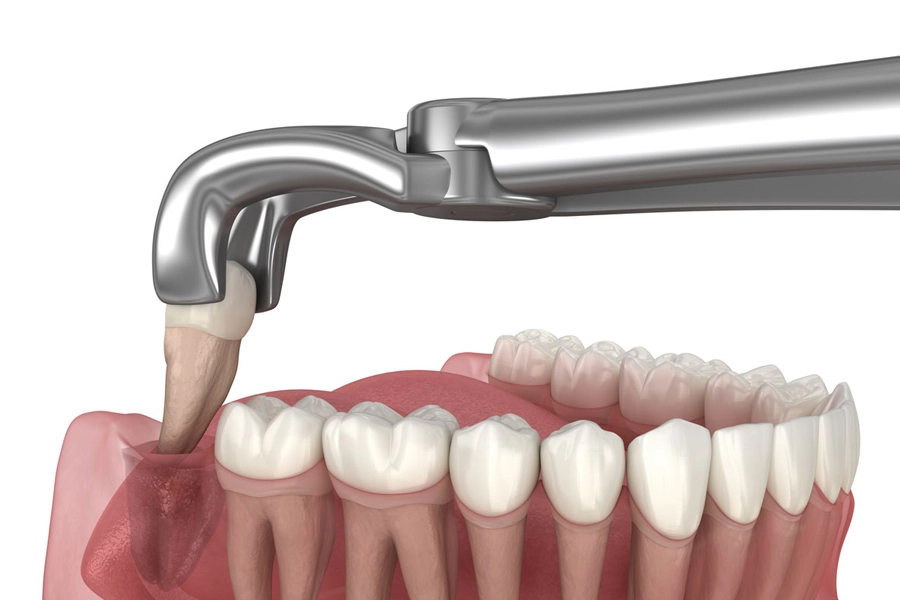There are many reasons why your dentist might recommend wisdom tooth removal:
- Your wisdom tooth erupt on an angle resulting other teeth shifting
- Your wisdom tooth may break through your gums partially causing a flap of gum tissue to grow over them. Food particle can get trapped under the flap and it is a good place for bacteria to grow and causes gum infection and inflammation which is called “pericoronitis”.
- Due to plaque accumulation on partially erupted wisdom teeth, and difficult access to clean them, decay in nearby teeth is common.
- Cyst and tumor developing around impacted teeth may happen ,though it is rare.
- Complications with orthodontic treatments to align other teeth
Preparing for surgery
A wisdom tooth extraction is almost always performed as an outpatient procedure. This means that you go home the same day.
You’ll receive instructions from dental clinic staff on what to do before the surgery and the day of your scheduled surgery. During surgery, dentist will:
- Give Profound anesthesia in the area surrounding the tooth.so,The process is no longer painful .
- Make an incision in the gum tissue to expose the tooth
- Split the tooth into sections if it’s easier to remove in piecesRemove the tooth
- Clean surgery site of any debris with salt water
- Close the wound with stitches
- Place gauze over the extraction site to control bleeding
After the procedure
As you heal from your surgery, follow your dentist’s instructions on:
Bleeding: Some oozing of blood may occur few hours after wisdom tooth surgery. Try to avoid spitting so that you don’t dislodge the blood clot from the socket. If it bleeds freely, hold a folded gauze on the extraction site to stop hemorrhage.
Pain management: Pain after wisdom tooth extraction can be managed with an over-the-counter pain reliever, such as acetaminophen (Tylenol, others), or a prescription pain medication from your dentist .
Swelling and bruising: Swelling is another complication after wisdom tooth surgery, which increases up to 72 hours after surgery and will decrease in 7-10 days. To minimize swelling ,apply a cold compress on your jaw as directed by your dentist .
Activity: After your surgery, plan to rest for the remainder of the day. You may go back to normal activities the next day.
Diet: avoid hard and hot food for the first 24 hours. Try to drink lots of cold beverage after surgery. Don’t drink through a straw
smoking: delay healing and increased risk of bleeding may happen after surgery if you smoke. Stay away from tobacco product for at least 72 hours.
Stitches: You may have stitches that dissolve within a few days. If your stitches need to be removed, schedule an appointment to have them taken out.
When to call your dentist
Call your dentist if you experience any of the following symptoms :
- Persistent numbness in lip or tongue
- Pus in or oozing from the socket
- Difficulty swallowing or breathing
- Excessive bleeding
- Fever
- Severe pain not relieved by prescribed pain reliever
- Swelling that worsens after three day
- Blood or pus in nasal discharge

